Coronavirus immunity could 'last for years,' new study suggests
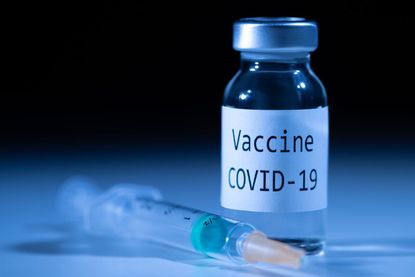

An encouraging new study conducted by several leading labs, including the La Jolla Institute of Immunology, found that most people who have recovered from a coronavirus infection within the last eight months likely have enough immune cells to fight off serious reinfections, The New York Times reports.
While it's still unclear exactly how long immunity may last, or whether it could prevent transmission (though that is certainly plausible), the new study has eased experts' concerns of short-lived protection based on studies that pointed to declining antibodies. Antibodies, after all, are just one facet of the body's complex immune system, and the new study indicated that other factors like T cells showed only a slight decay several months out from infection, while B cells, which produce new antibodies as needed, had actually grown in number in most participants.
The new findings, the Times notes, appear to line up with another recent discovery that survivors of SARS, which was also caused by a coronavirus, still carry important immune cells 17 years after infection. And while there have been cases of reinfection, they seem to be rare, per the Times.
Subscribe to The Week
Escape your echo chamber. Get the facts behind the news, plus analysis from multiple perspectives.

Sign up for The Week's Free Newsletters
From our morning news briefing to a weekly Good News Newsletter, get the best of The Week delivered directly to your inbox.
From our morning news briefing to a weekly Good News Newsletter, get the best of The Week delivered directly to your inbox.
More studies will be required to back up the not-yet-peer-reviewed findings, but it's not "unreasonable to think that these immune memory components would last for years," Deepta Bhattacharya, an immunologist at the University of Arizona told the Times. It may also be another layer of good news on the vaccine front, since vaccinations typically provide better, longer-lasting protection than natural infections. If that holds true in the case of COVID-19, people would theoretically get to avoid an annual booster shot. Read more at The New York Times.
Create an account with the same email registered to your subscription to unlock access.
Sign up for Today's Best Articles in your inbox
A free daily email with the biggest news stories of the day – and the best features from TheWeek.com
Tim is a staff writer at The Week and has contributed to Bedford and Bowery and The New York Transatlantic. He is a graduate of Occidental College and NYU's journalism school. Tim enjoys writing about baseball, Europe, and extinct megafauna. He lives in New York City.
-
 Magazine interactive crossword - May 3, 2024
Magazine interactive crossword - May 3, 2024Puzzles and Quizzes Issue - May 3, 2024
By The Week US Published
-
 Magazine solutions - May 3, 2024
Magazine solutions - May 3, 2024Puzzles and Quizzes Issue - May 3, 2024
By The Week US Published
-
 Magazine printables - May 3, 2024
Magazine printables - May 3, 2024Puzzles and Quizzes Issue - May 3, 2024
By The Week US Published
-
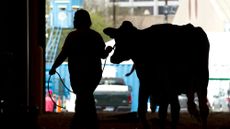 Texas dairy worker gets bird flu from infected cow
Texas dairy worker gets bird flu from infected cowSpeed Read The virus has been spreading among cattle in Texas, Kansas, Michigan and New Mexico
By Peter Weber, The Week US Published
-
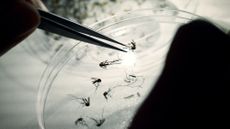 Dengue hits the Americas hard and early
Dengue hits the Americas hard and earlySpeed Read Puerto Rico has declared an epidemic as dengue cases surge
By Peter Weber, The Week US Published
-
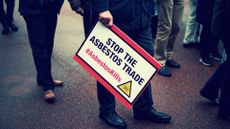 US bans final type of asbestos
US bans final type of asbestosSpeed Read Exposure to asbestos causes about 40,000 deaths in the U.S. each year
By Peter Weber, The Week US Published
-
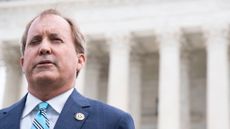 Seattle Children's Hospital sues Texas over 'sham' demand for transgender medical records
Seattle Children's Hospital sues Texas over 'sham' demand for transgender medical recordsSpeed Read Texas Attorney General Ken Paxton subpoenaed records of any Texan who received gender-affirming care at the Washington hospital
By Peter Weber, The Week US Published
-
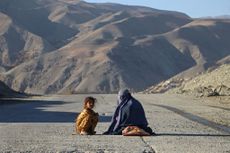 Afghanistan has a growing female suicide problem
Afghanistan has a growing female suicide problemSpeed Read The Taliban has steadily whittled away women's and girls' rights in Afghanistan over the past 2 years, prompting a surge in depression and suicide
By Peter Weber, The Week US Published
-
 US life expectancy rose in 2022 but not to pre-pandemic levels
US life expectancy rose in 2022 but not to pre-pandemic levelsSpeed Read Life expectancy is slowly crawling back up
By Devika Rao, The Week US Published
-
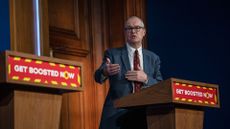 Vallance diaries: Boris Johnson 'bamboozled' by Covid science
Vallance diaries: Boris Johnson 'bamboozled' by Covid scienceSpeed Read Then PM struggled to get his head around key terms and stats, chief scientific advisor claims
By The Week UK Published
-
 An increasing number of dog owners are 'vaccine hesitant' about rabies
An increasing number of dog owners are 'vaccine hesitant' about rabiesSpeed Read A new survey points to canine vaccine hesitancy
By Devika Rao, The Week US Published